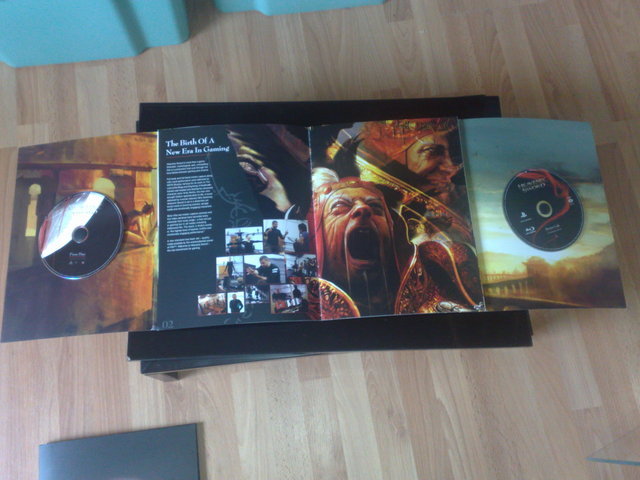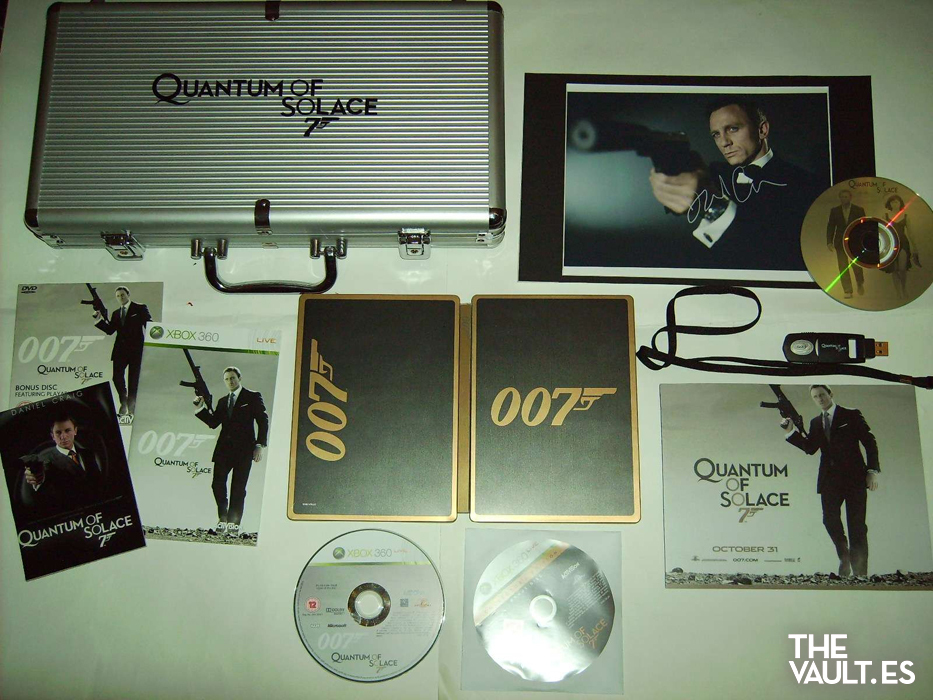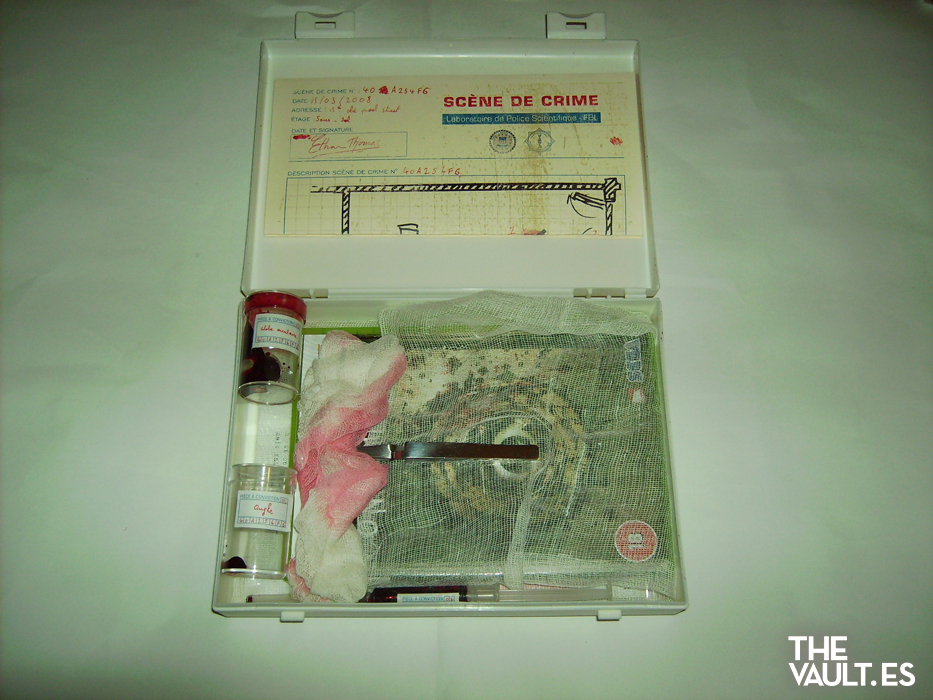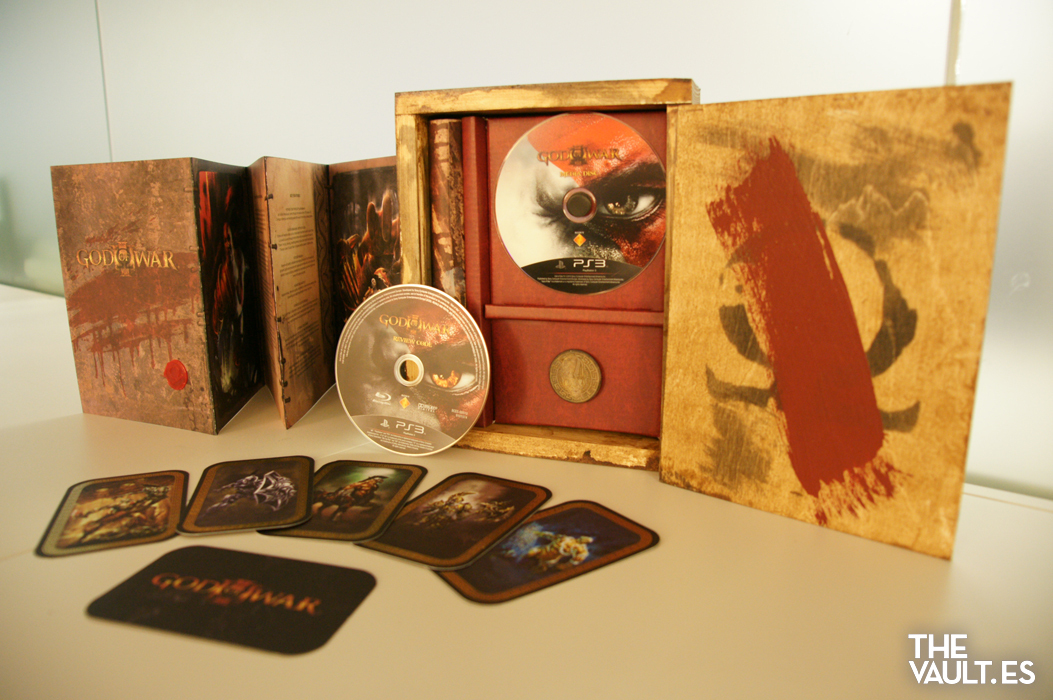Also LOL that Lauren chick actually believes she is a Journalist. She should look the word up some day.
I believe the dictionary entry looks something like Journalism: A buisiness of page views and sponsorship deals.
Also LOL that Lauren chick actually believes she is a Journalist. She should look the word up some day.
Also LOL that Lauren chick actually believes she is a Journalist. She should look the word up some day.















Jim Sterling said:If you want to be a big success in this — I guess we call it a profession — then you need to understand that, eventually, you’ll be in those headlights, and which way you’re able to run will determine what happens.
Run to the side of the road that embraces your talents as an entertainment blogger.
Run to the side of the road that embraces your upstanding record as a journalist.
Stand confused and get smashed the fuck to pieces.
Plus she has worked for Playboy.
Do you think Lauren acted entirely alone in pressuring Eurogamer to change my piece? Do you think she has that power? I don’t. Who do you think MIGHT have that power?

 Been at Remedy studio all day today. It has been such a fantastic day and I am so lucky to be here. Seriously, so lucky!
Been at Remedy studio all day today. It has been such a fantastic day and I am so lucky to be here. Seriously, so lucky! Love the Alan Wake swag we got. A signed poster, 2 t-shirts and a Alan Wake flash light for all my …. flash light needs. Anyway, arrived back in the UK at around 9:30am and I am so hung over. The Remedy guys sure know how to treat us to a night out. We all were taken out for some Finish cuisine. I had Reindeer for the first time and it was delicious! I also had 3 large glasses of wine and some super cold vodka shots. Then, after the restaurant, I had some weird black vodka shots. Of course, we ended up in some ice bar later on and when I arrived back I pretty much stayed away until we had to leave to get our plane at 5:30 in the morning!
Love the Alan Wake swag we got. A signed poster, 2 t-shirts and a Alan Wake flash light for all my …. flash light needs. Anyway, arrived back in the UK at around 9:30am and I am so hung over. The Remedy guys sure know how to treat us to a night out. We all were taken out for some Finish cuisine. I had Reindeer for the first time and it was delicious! I also had 3 large glasses of wine and some super cold vodka shots. Then, after the restaurant, I had some weird black vodka shots. Of course, we ended up in some ice bar later on and when I arrived back I pretty much stayed away until we had to leave to get our plane at 5:30 in the morning!
















Though when someone brought this up to him on twitter I believe he said something along the lines of "I ran a fan site! That doesn't count!"Luckily, time flew by and we were called down by an EA representative to meet some of the game’s designers. We walked to a nearby restaurant, the Thirsty Bear, we were treated to an awesome dinner with almost unlimited servings of every Spanish dish the place had to offer. We satisfied ourselves with wine, beer, and other beverages as the dishes kept flowing in.
...
After our dinner, the group of us went out for a night on the town with the game’s creators. We met up with some of the Hellgate: London development crew and went to a club where we would spend from sundown to sunrise drinking, talking, and dancing.
...
Ushered into a meeting room that had a projector on the wall and a tray full of delicious turkey sandwiches, we were treated to a Q&A session with the game’s designers, where we could ask about all the things that the readers of our fansites were dying to find out.
...
Following the Q&A, we were given t-shirts (several of which I still own), and we signed a non-disclosure agreement about the live content that we were about to experience
...
This, however, is where the eventual pit in my stomach started. Even though it was my first time playing the game, the experience was a little underwhelming. The combination of finicky movement controls, unfinished character animations, and an underutilized setting set the stage for my initial disappointment. I liked what I saw, but I had my doubts; it didn’t seem polished enough and it wasn’t quite what I expected. But I remained silent; I felt as if speaking negatively of this game would be a betrayal to the friendly studios I just visited and my recent drinking buddies. So I kept quiet, and continued on with my experience.
...
Seeing the excitement on the faces of the friendly folks at Flagship Studios, I felt unwilling to share my negative impressions with the developers this at the time. It wasn’t until much later, well into the game’s beta test, that I would, like many other players, share my worries about the game on its private forums. I almost got in trouble for this because the game’s community manager didn’t think it was appropriate for a publishing partner of the company (posting anonymously on the forum, for no one knew where I worked) to express criticism about the game, as if my words somehow weighed more than the thousands of other testers whose views I shared.
...
A couple of representatives from Intel and Microsoft walked in at the end of the feedback session and presented us with a bleeding edge CPU and a motherboard to go along with it. They added that such a powerful system would be incomplete without a copy of Vista Ultimate to go along with it, so they threw that in as a bonus. I was ecstatic.
Interviewed on camera by one of Flagship’s community managers, I called the event “one of my most awesome experiences” and threw in an empathic “Hell yeah!” As a final surprise, the game’s producer, Bill Roper, announced that he had added our nicknames as unique items into Hellgate. If you’ve ever played the game and found a unique Templar breastplate called Sol’s Invictus–it refers to me.
It is a reminder of better times. The game went quickly downhill, and our expectations petered out by release.
What, none of those Remedy guys could get her in bed after feeding her so many drinks? Decline (incline?) of Finns.

Shawn Elliot said:No insult, no finger-pointing intended in the following.
Pharmaceutical company companies extensively research physicians' hobbies and personal interests, send attractive spokespeople to "inform" said physicians about their products over three-star michelin meals and golf games. Without exception, these physicians insist that they are immune to unethical influence.
Corporations like Coca Cola spend $10 billion a year or more on advertising campaigns with messages that college undergrads -- here I'm speaking from experience as a former instructor -- unfailingly insist they're uniquely insusceptible to.
Either these corporations are somehow recklessly burning revenue by the billions and somehow raking in unprecedented profit despite the sheer stupidity of their business practices or people are prone to maintain flattering though entirely unrealistic images of themselves. Unfortunately for us, replicated psychology experiments point to pervasive self-deception. Fortunately for us, while it's practically impossible for us to accurately monitor our own self-interest, we're marvelous at pointing it out in others. And this is the why the appearance of impropriety matters so much.
Tomes of research on the topic are out there and anyone remotely interested in cognition will encounter the experiments again and again. For those unfamiliar with it I recommend starting here: http://www.amazon.com/Honest-Truth-Dishonesty-Everyone---Especially-ebook/dp/B006IYFCIM/
A teaser to generate interest in the topic: http://www.youtube.com/watch?v=XBmJay_qdNc
You're missing the point. Strong-arming doesn't work. What works is precisely what you aren't aware of. http://www.psychologytoday.com/blog/consumed/201206/thanks-giving
Not at all. It's interesting that your defense is to dismiss the notion that influence works in subtle ways that we aren't always aware of (as opposed to the popular notion of blatant bribery and "money hats") as generalization, and then use as your argument the assumption that any PR interaction at all would have to guarantee a good review if in fact the psychological research was right. That is gross generalization... or you just aren't getting the argument. I can't offer a crash course on the topic at the moment as I'm at work, so instead imagine it from the "appearance of impropriety" angle.
You're publishing a review. Pretend you're willing to include a sidebar with the subhead "Things that can have no influence at all on my perspective." In this sidebar are photos of you sharing single malt Scotch and haute cuisine with PR people. There are photos of the array of tchotchkes you received at the assorted press events for the title that you attended. There are also photos taken from your night out with your hosts. Despite your confidence in you being the rare exception to rules about human behavior, how likely is your audience to come to the same conclusion?
Apparently, judges' glucose levels affect their rulings: http://blogs.discovermagazine.com/n...how-food-breaks-sway-the-decisions-of-judges/
And yet you expect your audience to regard you as a Randian ubermensch rational above your biology.







ATM I'm more pissed at those awesomebribesgifts than with the 'journalists'.... retarded review I can and do ignore, but man, some of those bribes are sweet!
With all this talk about game journalists claiming they're not affected by the awesome treatment they receive, I felt it appropriate to take a trip down memory lane. Ian Miles Cheong in his own words:
http://hellmode.com/2010/06/21/the-great-disappointment-of-hellgate-london/
Though when someone brought this up to him on twitter I believe he said something along the lines of "I ran a fan site! That doesn't count!"Luckily, time flew by and we were called down by an EA representative to meet some of the game’s designers. We walked to a nearby restaurant, the Thirsty Bear, we were treated to an awesome dinner with almost unlimited servings of every Spanish dish the place had to offer. We satisfied ourselves with wine, beer, and other beverages as the dishes kept flowing in.
...
After our dinner, the group of us went out for a night on the town with the game’s creators. We met up with some of the Hellgate: London development crew and went to a club where we would spend from sundown to sunrise drinking, talking, and dancing.
...
Ushered into a meeting room that had a projector on the wall and a tray full of delicious turkey sandwiches, we were treated to a Q&A session with the game’s designers, where we could ask about all the things that the readers of our fansites were dying to find out.
...
Following the Q&A, we were given t-shirts (several of which I still own), and we signed a non-disclosure agreement about the live content that we were about to experience
...
This, however, is where the eventual pit in my stomach started. Even though it was my first time playing the game, the experience was a little underwhelming. The combination of finicky movement controls, unfinished character animations, and an underutilized setting set the stage for my initial disappointment. I liked what I saw, but I had my doubts; it didn’t seem polished enough and it wasn’t quite what I expected. But I remained silent; I felt as if speaking negatively of this game would be a betrayal to the friendly studios I just visited and my recent drinking buddies. So I kept quiet, and continued on with my experience.
...
Seeing the excitement on the faces of the friendly folks at Flagship Studios, I felt unwilling to share my negative impressions with the developers this at the time. It wasn’t until much later, well into the game’s beta test, that I would, like many other players, share my worries about the game on its private forums. I almost got in trouble for this because the game’s community manager didn’t think it was appropriate for a publishing partner of the company (posting anonymously on the forum, for no one knew where I worked) to express criticism about the game, as if my words somehow weighed more than the thousands of other testers whose views I shared.
...
A couple of representatives from Intel and Microsoft walked in at the end of the feedback session and presented us with a bleeding edge CPU and a motherboard to go along with it. They added that such a powerful system would be incomplete without a copy of Vista Ultimate to go along with it, so they threw that in as a bonus. I was ecstatic.
Interviewed on camera by one of Flagship’s community managers, I called the event “one of my most awesome experiences” and threw in an empathic “Hell yeah!” As a final surprise, the game’s producer, Bill Roper, announced that he had added our nicknames as unique items into Hellgate. If you’ve ever played the game and found a unique Templar breastplate called Sol’s Invictus–it refers to me.
It is a reminder of better times. The game went quickly downhill, and our expectations petered out by release.



Go read retardo land stickies.Sol Invictus! Rex exitium! Ians Miles Cheong! So..he's one of the guy who founded codex, the 'best friend' of Cleve, the White Knight !

Deus Ex Human Revolution published of course by SQUARE-ENIX!









The other day, an EA spokesperson invited me to go to Germany to go to some Porsche driving school in order to, in a roundabout way, play more of the next Need for Speed. (I declined.) Today, Capcom sent me a really heavy box. A $300 chess set was in it. Yes, it's cool. No, it wasn't necessary.
Public relations is all about creating the perception around a game, which does cause problems. You see situations where the guys going to review a game are invited to go to Venice, and they're going to spend a half hour with the game and a week in Venice in a five-star hotel. It's going to be extremely hard to be extremely negative about it.
Press trips are the other big issue. I haven’t been on one for years now (and in the last few years they’ve only been with Valve, who are quite exceptional in their doing absolutely no PR whatsoever – a driver collects you from the airport, drops you at a hotel, and then you get yourself to their office and back, and figure out food, entertainment, etc for yourself). Edit: It’s been pointed out to me that I recently went to a two-day, no-frills event in London to play SWTOR ahead of release, that involved an overnight stay. I’d quite forgotten. But let’s take the norm, for let’s say a trip to San Francisco to visit a developer and look at their game at some point during its development. In my experience (and I’m intrigued to learn this is not the norm for many American mags/sites) the trip is paid for by the publisher behind the game. This includes flights (absolutely always in Economy in my experience, with the exception of Valve), a hotel room, and meals during the trip. You are looked after by a PR, whose job is to ensure journalists go where they’re supposed to go and see what they’re supposed to see, and then take them out for dinner in the evening. And yes, obviously here there is lots of room for criticism.
Every aspect of that could be considered an attempt to influence my opinion of the game I’m seeing (although I’d argue flying twelve hours in Economy doesn’t quite fit that bill), and you can obviously see how it’s in the PR’s interests to keep the journalists content. Again, from the perspective of the writer, it’s hard to perceive any of it as a bribe. You need a plane to get to the developer, you need a bed to sleep in, and you need to eat. And since you can’t afford any of those things, it’s useful that someone else is paying. Whether that’s your employer/magazine/website, or the publisher, in the end is immaterial to you as a writer. Where things get more tricky is in the entertaining that might surround the trip.
I remember spending one day going to Universal Studios in LA. It was an absolutely brilliant day, not least because it was so far removed from what a press trip would usually try to do. At the time, the theme park was like something out of a Scooby Doo episode, run down and depressing, and I was with a group of hilarious writers – we had the best day laughing at the dilapidated ruin of a 1980s hangover, and then got to go down the road where Buffy lived. I couldn’t tell you what game it was for, and I can assure you that it didn’t influence whatever I wrote about whichever game it was when I got back. But if you want to criticise me, I absolutely got given entry to Universal Studios by a PR. That merits criticism.
However, I also made personal choices on such trips. Most journalists want to spend the evenings in bars, drinking lots. I can think of little I’d like to do less, and quickly learned to politely opt out of post-dinner activities, and head back to my hotel room. I’d get funny looks, but I’m comfortable enough with myself to ignore that. In the morning I’d not have any disturbing anecdotes, but I’d also not have a debilitating hangover. I’m also extremely fortunate that I’ve only once had to turn down an offer to go to a strip club. I’ve never been to one, have no desire to go to one, but have often heard about their being offered on such trips. That’s deserving of criticism.
One time I was sent to London for a preview event for the game Auto Assault. What I didn’t know was that I’d spend the day riding on quad bikes and hovercraft. I had a great day, by coincidence with a few good friends, and at the end of it we were shown the average-looking game. That I’d wasted a day pratting around on bikes didn’t make me want to like the game more – if anything it puts the mediocrity of a game in perspective – and the game went on to be a disastrous flop that few journalists sought to defend because they’d had a nice day going on a quad bike. But that day is definitely deserving of criticism – it had nothing to do with the game, and had no purpose other than to try to entertain us. And the publishers had no reason to want to entertain us other than to have us like their game more. It didn’t work, it’s damned stupid. But I was a part of it, and you’d be right to criticise it. (Although at least I didn’t write about the day for any press – I’m concerned to see today people on some jaunt in Paris where Microsoft pay for a bunch of journos to race cars, who are then writing about it.)
Very well written, sir.
However, as an ex-games journalist working in the 2000s, I’m pleased, but surprised, that you don’t feel that there is a significant problem with advertising or PR activity greatly affecting content. I say this because, in the eighteen months or so that I worked on a games mag, I felt it was rife – and several of my colleagues would openly agree that this was the case. We didn’t like it and that’s one of the reasons why we’ve almost all left (many into PR it should be noted), but it honestly felt like part of the process.
Yes, not everything was as blatant as people might imagine, but some of it was. I distinctly remember my Editor, on a number of occasions, agreeing to ‘exclusive’ or early reviews on strict condition that the review score was at least an 8/10. We hadn’t played the game at all and yet this was promised. Needless to say, the pressure placed on the team to write up an 8/10 review was immense. If everyone refused, which was rare, the editor would simply review the game himself or offer it to freelance upon that understanding.
It was also common practice for magazines to contact games companies looking for decent front covers. The company I worked for couldn’t afford special foil treatments, spot UV and the like, but publishers would often shell out for a pretty front page. Of course, the price for this was always guaranteed positive coverage – clearly the company would never fund such a thing ever again if you failed to write what they’d expect.
My review scores were frequently rounded up and always for the big titles – if anyone submitted a score for a AAA Ubisoft title that was less than a 7/10, it would almost always be bumped up for so-called ‘editorial’ reasons. Reasons that were never satisfactorily explained and often led to scores and text not matching up. Did this happen for low-budget Eastern European titles? Never, because such firms barely advertised. And were scores ever knocked down? Only once, in my very first week. And believe me, the advertising department would make it very clear to editors what was required in order to secure the big money.
And yes, there were occasions when writers would bluntly be told to change their reviews as ‘we couldn’t risk upsetting’ certain big companies. Not all of us would be furious – some had worked there so long they’d just become used to it.
This was typically avoided by selecting freelancers who never gave a bad score to anything. Maybe some of these freelancers were easily pleased, but certainly not all. I remember going on a press trip to Italy where one very experienced writer happily boasted that he’d reviewed several games without even installing the product.
The trick, he told me, was simply to give virtually every game a 7/10 – ‘ as long as you don’t upset the PRs and you keep things general you’ll have no problem’.
Of course, some people might think that this was the attitude of just a few ill-disciplined people, but it was pretty much companywide and part of the culture. A culture that is very easy to foster when most of the employees are 18-21 year old lads, blinded by the idea of working in their dream job and being paid minimum wage. On £11k basic salary you certainly couldn’t afford to be low down on the freelance list. And at 18 many people lack courage and/or wisdom and are very easily malleable by senior members of staff.
Again, I’m pleased that you haven’t encountered too much of the above John, but I know a hell of a lot of writers have. I just expect that most won’t admit it in the fear that if they do, it would completely undermine the industry that they love being a part of.
There's a lot wrong with game journalism, from the wide-eyed kids with no writing and editing skills who are exploited by unscrupulous editors/Web site managers who simply do not want to pay for content, to the professionals who take the tchtochke and openly proclaim how it's going right on Ebay.
I love to retell this story, because it's wholly indicative of everything involved in game journalism. I won't name any names to protect the guilty, but the guy in question is pretty high up on the food chain now...
So I'm at a game event, and Important Game Journalist A is badmouthing, openly badmouthing, the Web site I'm working for. I'm not sure why he's doing it, he seems a bit of an ass, but I have no desire to say anything. Until the guy remarks about how above-board he is, how he is a real journalist in a sea of hot-garbage hacks.
I asked him, "Who paid for your flight?
"Who paid for your hotel?
"Who paid for the travel to and from the airport, to the event, and to this restaurant?
"Who paid for that steak in front of you? And the drinks you've been pounding?"
Well, he hadn't paid for any of it. Not a cent. And he wouldn't pay a dime the entire time he was there.
"Woodward and/or Bernstein you are not, I told the guy."







